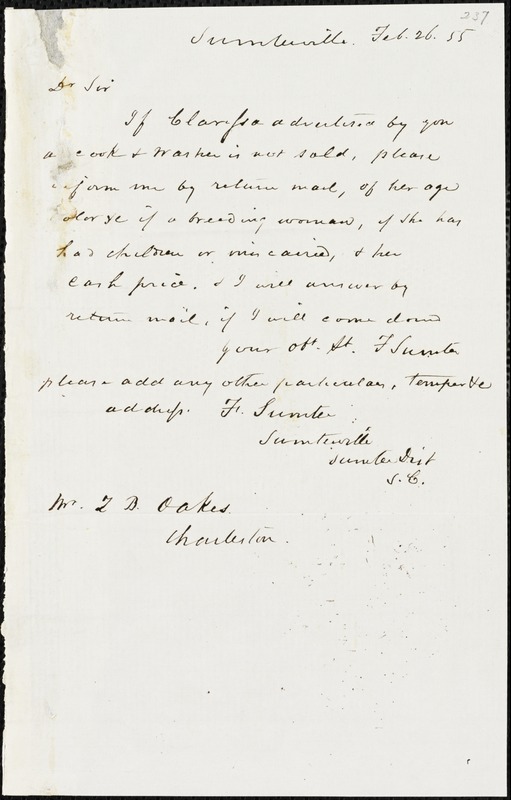This text is part of the Teaching Hard History Text Library and aligns with Key Concepts 2, 4, 5 and 8.

Sumterville, Feb. 26, 55
Dear Sir,
If Clarissa advertised by you a cook & washer is not sold, please inform me by return mail, of her age color and if a breeding woman, if she has had children or miscarried, & her cash price.
I will answer by return mail, if I will come down. Please add any other particular temperament.
Mr. Z. B. Oakes
Charleston